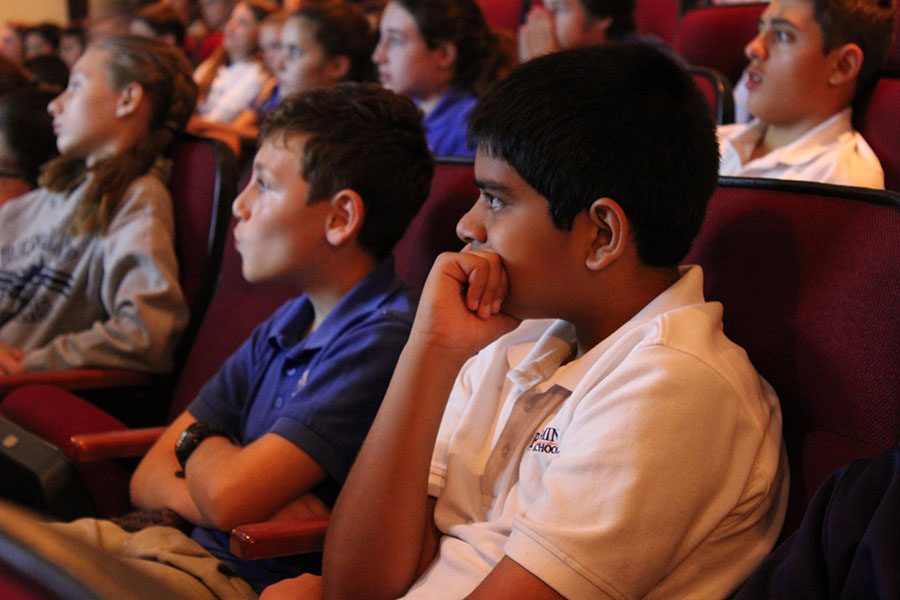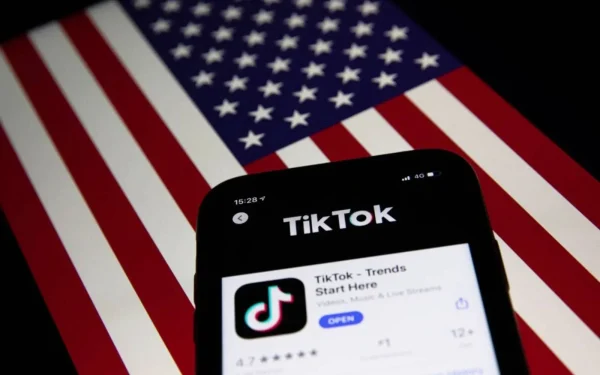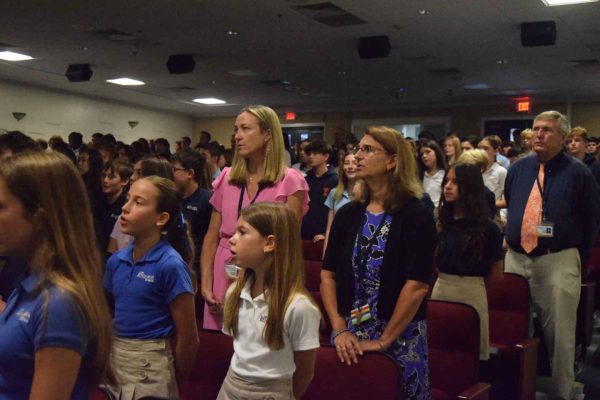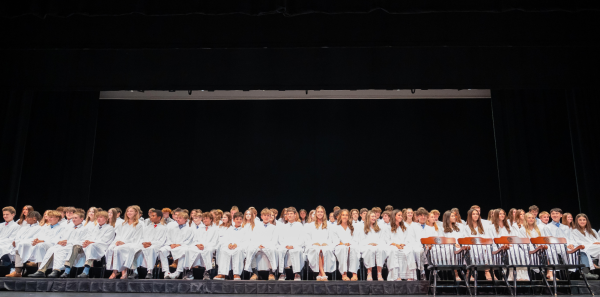Documentary Warns Students about Screen Time
Sixth graders Aadi Patel (right) and Brandon Baklayan watch Screenagers with the rest of the middle school in the BPAC.
Physician and filmmaker Delaney Ruston had an idea that started with one simple question, “What new phone should I get my daughter because her old phone has stopped working?” With this question in mind, she decided to compose a study of teenagers and their need to constantly be in front of a screen, whether that screen is their phone, computer, or a video game. The result was the documentary Screenagers.
The middle school administration screened the film for students in grades six through eight, as well as their parents, on November 15. “The purpose of showing Screenagers to the middle school students was to raise their awareness about [screen time] and to encourage them to consider the technology in their own lives and whether or not they are using it in healthy and safe ways,” said Director of Student Services, Susan Poncy.
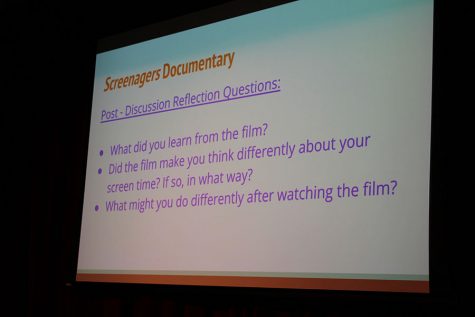
The students were provided with post-discussion questions after the documentary which they talked about in their advisories.
The basic concept of the movie is to spread the word about how addictive technology is as a whole and that it’s important for students to take a break from their portal to a different world. “It was really informative about the problems teenagers face relating to their phones and technology they have,” said seventh grader Evan Liberman. This documentary explains how the average American teenager spends more than ten hours in front of screens every day and how it is unhealthy for their brains. With technology being so prevalent and affordable now, it seems like every student has a device which allows him or her to get a “technology fix.”
“[I use my phone] because I’m bored, and there’s nothing else to do, and there are always games,” explained eighth grader Carol Chen. At other times Chen and other students use their technology for more constructive purposes. Seventh grader Catherine Schenk shared that she “usually use[s] technology for school [like studying or writing a report on Google Docs] , and then…for free time, like reading.”
During the screening, Ruston presented many cases of children whose compulsion for their screens was intense. Many teenagers in the film were playing predominantly violent video games which affected both their attitude and health negatively. The way teenagers use phones is, interestingly enough, different. Users of phones spend a great amount of time on social media and texting, which decreases time spent with friends face-to-face or time spent outside. The question, of course, is whether such a film and its screening at Benjamin will serve as a revelation and a wake up call for students in the TBS middle school.
The irony is certainly clear that in order to teach students how detrimental screens are for them, they sat in front of a large screen to watch the documentary. Still, if Screenagers changes the lives of even a few teenagers throughout the middle school and in the world, it is a film definitely worth watching, and this is one of many efforts TBS provides to make sure students are using technology properly.
